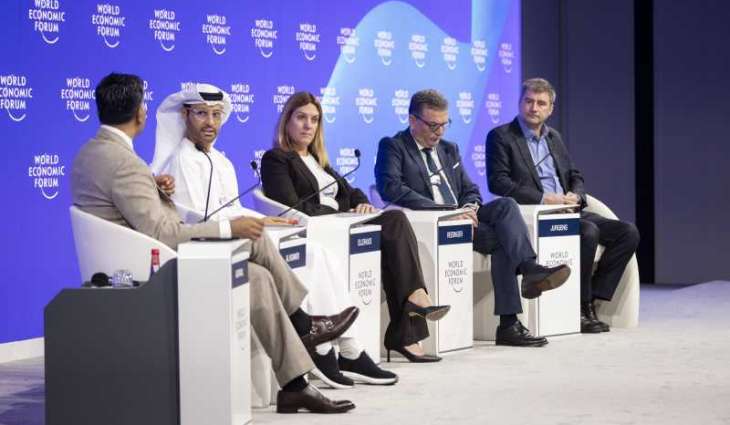DUBAI, (Pakistan Point News - 14th Oct, 2025) Participants and experts at the 2025 Annual Cybersecurity Meeting, held in conjunction with the Global Future Councils 2025, affirmed the strategic importance of cybersecurity and the need to enhance international cooperation and partnerships between the public and private sectors in line with the evolving global landscape.
They stressed the importance of governance, relevant legislation, and technological innovation to ensure a safer and more resilient cyberspace.
This came during a session titled "The New Cyber Order: Cooperation in the Age of Disruption", with the participation of Dr. Mohamed Al Kuwaiti, Head of Cybersecurity for the UAE Government; Jeremy Jurgens, Managing Director of the World Economic Forum; Rachel Ellehuus, Director-General of the Royal United Services Institute in the United Kingdom; and Helmut Reisinger, CEO for Europe, middle East and Africa at Palo Alto Networks, USA. The session was moderated by Ravi Agrawal, Editor-in-Chief of Foreign Policy magazine.
Dr. Mohamed Al Kuwaiti said that the UAE recognises the vital role of cybersecurity in building a secure and sustainable digital future and is committed to leveraging its advanced tools and smart investments to enhance its cyber readiness. With its globally advanced position, ranked third worldwide in artificial intelligence—the UAE is leading an exceptional model in embracing strategic transformations and consolidating its position as a regional and global digital innovation power.
He explained that, amid rapid technological transformations and successive geopolitical changes, the UAE continues to adopt a flexible and multidisciplinary intellectual approach to seize the opportunities of the smart era, enhance resource management efficiency, and boost productivity by accelerating the shift towards an innovation-driven knowledge economy.
Al Kuwaiti pointed out that the world is currently witnessing an advanced phase of cyber warfare, with digital attacks posing an escalating threat that exceeds the impact of many traditional conflicts. He said the UAE has, over recent years, closely monitored the cybersecurity landscape and has successfully addressed a number of challenges and cyberattacks, thanks to its security vigilance and advanced strategies in threat analysis and response.
He noted that the UAE has achieved remarkable milestones by employing advanced analytical capabilities and establishing an integrated framework of partnerships between public and private sectors. These efforts are further supported by cooperation with international partners, effective judicial rulings, and the signing of multilateral agreements. The country has also succeeded in dismantling fraudulent networks and combating ransomware, reflecting its leadership in building a secure digital environment that fosters trust and contributes to sustainable development.
For his part, Jeremy Jurgens said, “We are living today amid new global technological systems, and progress in cybersecurity is no longer confined to information technology alone. It is now the result of integrated efforts. We brought together over 600 experts and scientists, alongside cybersecurity professionals, to combine intellectual and technical knowledge. We are now working on developing innovative defence mechanisms stemming from this unique collaboration.”
Rachel Ellehuus stated that the world is witnessing cyber wars without a defined battlefield. She said, “We are living in a continuous state of change and disruption. Governments’ cyber objectives can directly impact various sectors, which requires more coordinated and effective action by governments to understand the magnitude of current security challenges.”
Ellehuus emphasised the need to empower institutions through clear legislation that charts a roadmap to confront these threats. She stressed that isolation and creating unilateral rules is no longer a viable option and called for enhancing cooperation at all levels—between countries, internal institutions, and between public and private sectors—to build a safer and more stable global cyberspace.
For his part, Helmut Reisinger said, “We have witnessed a significant increase in cyberattacks since 2023, and artificial intelligence has contributed to accelerating this trend.” He added that adherence to legislation is essential, despite its variation from one country to another, and stressed that countries lacking strong legal frameworks are more vulnerable in this field.
In conclusion, participants in the meeting underscored the need to formulate laws that address cyberattacks and acknowledged existing weaknesses in the cybersecurity domain. They highlighted the importance of enacting and effectively implementing appropriate legislation, in addition to enhancing cooperation between all relevant stakeholders, both government and private, to raise the overall level of cybersecurity.




